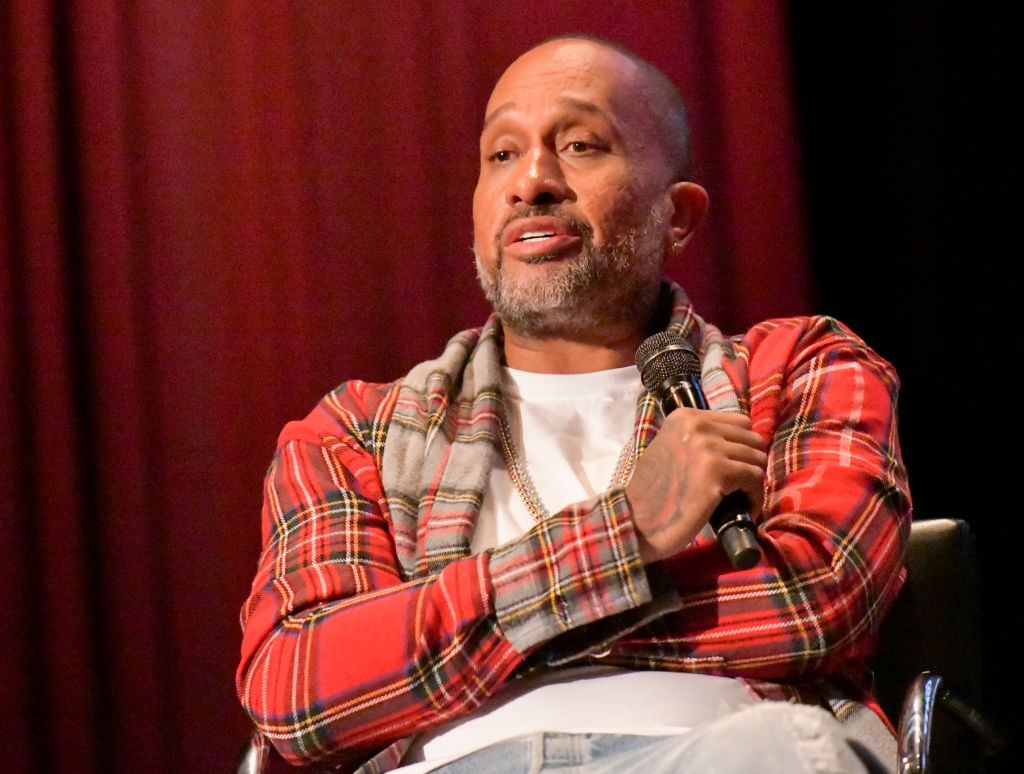
Source: Rodin Eckenroth / Getty
When we learned that Kenya Barris’ “black-ish” was getting a spin-off series, and the cast for “grown-ish” was revealed, there was quiet conversation about the issue of colorism in the selections made.
But, at the time, the show had just begun and people argued that it was too early to determine whether or not there was an issue of colorism. They wanted to give the project the benefit of the doubt and see where it would end up. But now, we have more information. The show is approaching its third season and for the most part, the cast hasn’t changed. New cast members have been added, but they too fall on the lighter side of Black. Darker skinned characters come in for an episode or two and then disappear.
Earlier this year, ABC announced a second spin-off of “black-ish,” “mixed-ish.” As the name suggests, it’s a show about a biracial girl and her siblings navigating issues of identity and culture in a new school, new city and with family members, of both races, who have their own ideas about who she and her family should be. Tika Sumpter would eventually be chosen for the role of the Black mother. But in “black-ish,” Rainbow’s mother is a light skinned woman played by Anna Deavere Smith.
The decision to place Tika, a dark skinned woman in the role, reportedly came for Tracee Ellis Ross. Ross, who serves as executive producer for the series, wanted a woman who looked more like her real-life mother, Diana Ross.
Now, Barris is working on another show called #blackexcellence with Rashida Jones for Netflix. Unlike his other projects, Barris will star in this series along with Jones, Genneya Walton, Iman Benson Scarlet Spencer, Justin Claiborne, Ravi Cabot-Conyers and Richard Gardenhire Jr.
The show, according to Deadline, is inspired by Barris’ “irreverent, highly flawed, unbelievably honest approach to parenting, relationships, race, and culture, #blackexcellence flips the traditional sitcom family on its head. Pulling back the curtain, the series uncovers and explores the messy, unapologetic and often hilarious world of what it means to be a “new money” Black family trying to get it right in a modern world where “right” is no longer a fixed concept.”
This sounds a lot like “black-ish” but that’s not what we’re here to discuss today.
When Netflix shared imaging of the cast and for the series, it was met with some valid question and criticism from the Black community.
See what people had to say on the following pages.
Barris got wind of the criticism and he didn’t exactly take too kindly to it. In since deleted tweets, he wrote:
“I’m also not gonna make up a fake family that genetically makes no sense just for the sake of trying to fill quotas. I LOVE MY PEOPLE and everything I does [sic] reflects that love. But to cast people like some kinda skin color Allstar game would actually do more harm than good. “The answer is to make sure we keep making good programming and depict ALL our beauty in real ways and roles that show the world the broad spectrum of who we are in REAL ways for EVERYONE 2 c [sic].”
He continued: “I really appreciate ur comments & I hardly ever react to social media but this cut me a little. These kids look like my kids. My very Black REAL kids & they face discrimination every day from others outside our culture and I don’t want them to also see it from US.”
He finished by adding this: “I’m going to say this and then let what happens happen… Colorism is a divisive tool used by the powerful to separate the truly powerful.”
This is not true and it’s certainly a weak rebuttal.
Then it made people examine the times in which darker skinned people were cast in Barris’ shows.
Whew.
It’s not about fulfilling quotas bruh. It’s really about using your access to Hollywood spaces to make room for the Black folks who have been denied access to these opportunities because of Eurocentric beauty standards of light skin, long or curly hair and narrow features. Kenya says he loves his people. I’m not here to argue whether he does or doesn’t. But as a lover of Black folk, who claims to create content for Black folk, he should be willing to hear our criticisms and should have addressed them in a manner and tone that shows he understands how colorism has impacted and continues to oppress our community.









